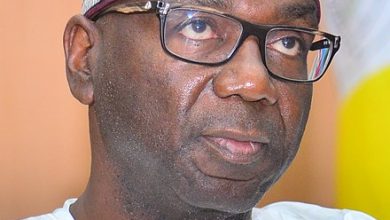Unilorin and the loss of innocence

By Kunle Akogun
Like a savagely deflowered maiden, the University of Ilorin lost its jealously guarded virginity, of 20 years standing, last Tuesday with the decision of the Congress of its local Chapter of the Academic Staff Union of Universities (ASUU) to comply with the directive of its national body to proceed on a two-week warning strike. The national media space was awash, not really with the strike itself per se but with the very unlikely, almost unthinkable reality that the University of Ilorin had finally buckled, capitulated and consequently bowed to pressure and joined the bandwagon of strikers! And with that, our famed cutting-edge pride of uninterrupted academic calendar seems to have given way. What a sad way to lose one’s innocence!
But this is one of the disadvantages of the much lauded reintegration of the University ASUU into the national body. Though the advantages are legion, the incubus of disruption of academic calendar, which Unilorin had buried since the past 20 years or so, is unfortunately being exhumed to the chagrin of students and parents whose major attraction has been the peculiar smoothness of our academic programmes.
ASUU going on strike has become so commonplace in recent times that it no longer makes headlines in Nigerian news media. But the fact that the University of Ilorin joined the strike this time around was the biggest news angle in the land since the dawn of this millennium. And this is understandable. In journalism parlance, news is defined by the rarity of an occurrence. Thus, when a dog bites a man or the dog wags its tail, there’s nothing unusual. But when the tide turns and the man starts to bite the dog or the tail begins to wag the dog, then it becomes news! Which explains why most of the media reports of the two-week warning strike declared by ASUU were anchored on the involvement of Unilorin that has traditionally shunned such industrial actions in the past. Thus, headlines like “UNILORIN joins ASUU strike first time in 20 years”, “Unilorin holds examination despite ASUU’s strike”, and so on, were freely used to catch readers’ attention.
This loss of one of Unilorin’s cutting edge brands, the sweet appellation of “uninterrupted academic calendar”‘ is one of the costly prices the institution has to pay for its local ASUU’s much commended reintegration into the national body.
Like I wrote in this column on July 6, 2019 in the wake of the reconciliation exercise, the rapprochement was necessarily dictated by the exigency of the dictates of national educational rescue mission. I said then, that “the almost two decades long feud has never been in the overall interest of the nation’s educational system, which requires the concerted efforts of all stakeholders to pull out from the abyss into which it has sunk over the years. Even though the University of Ilorin has resolutely soldiered on, in the face of the crippling sanctions, to make substantial contributions to the nation’s educational development, becoming in the process the toast of admission seekers and attracting the commendations of sundry policy makers, the resolution of the feud would no doubt bring additional developmental strides”. And so, it was hailed throughout the campus as one of the most courageous decisions ever taken by any Vice-Chancellor.
But last Tuesday’s breaching of Unilorin’s almost 20 years old “agreement” of non-recourse to the strike option to settle industrial disputes, especially with the contagious succession of ever listening and responsive administrations in the University leaves a sour taste in the mouth. Even though the extant trade dispute is not with the University management, it is nonetheless considered as one of the bitter by-products of the new entente! I don’t think that the doves, who championed the reconciliatory initiative ever bargained for what is gradually rearing its head. Surely, nobody ever imagined that the move would lead to a rape of our innocence, at least not so soon! What the doves had in mind was probably that the resolution of the ASUU crisis would place the University of Ilorin in the best position to avail other public universities in the country the secrets of its successes, especially how it has been able to achieve immunity from destructive strikes that have turned most higher institutions of learning in the country to crisis towers rather than the ivory towers they ought to be. But what are we now beginning to witness?
Nobody is, however, blindly blaming Nigerian workers, nay ASUU, for perennially towing the path of industrial action. Many people believe that in this country that line of action by the workers is probably the most sonorous music in the ears of our policy makers. Rather than nipping workers’ strike in the bud, with responsive and empathetic policies, people in government seem to always prefer to wait for things to get to a head before they start running helter-skelter. Why should they always think up the belated idea of inviting union leaders to mid-night negotiations on disputed matters when they know ab-initio that concessions are sine qua non? Why won’t a government of the people for the people do everything possible to avert industrial actions when it knows that the people would suffer the brunt anytime a strike is declared? In the history of industrial actions in the country, striking workers have never been known to lose anything during and after any strike. In fact, strikes are like bonus to workers because they would still get their salaries fully paid for the duration of the sit-at-home strikes that often paralyse the economy and, in the case of lecturers, often affect the students adversely. So, wouldn’t the government rather do everything possible to stave off strikes?
*Akogun is the Director of Corporate Affairs, University of Ilorin.




